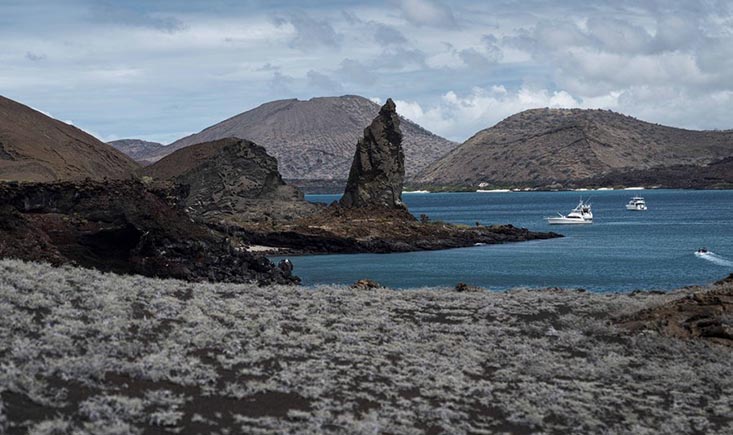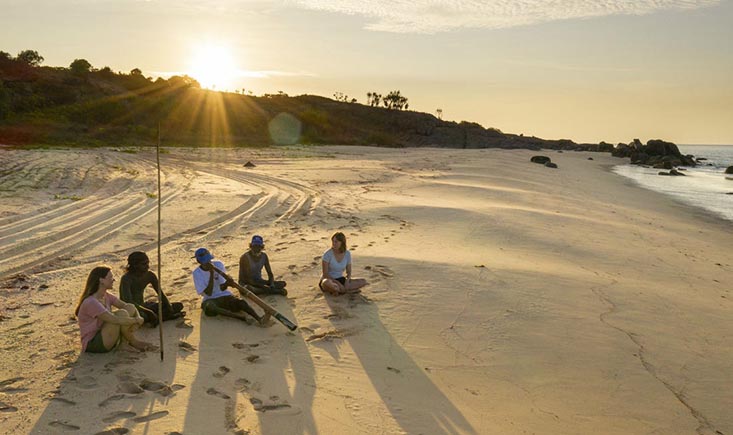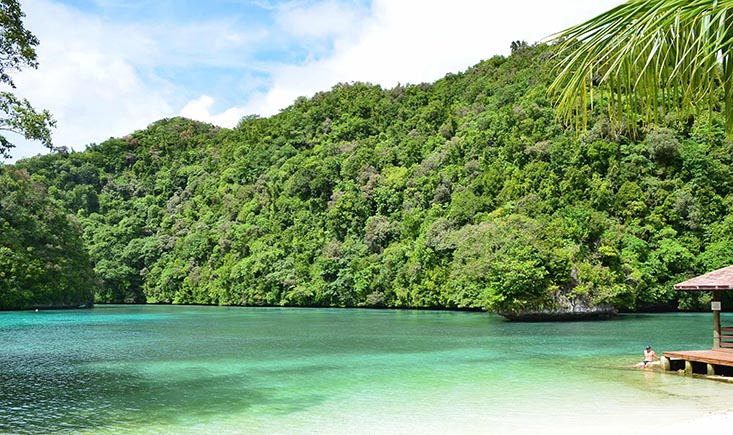
Exploring Sustainable Tourism Practices in Darwin
Sustainable TravelNestled on the northern coast, Darwin is renowned for its breathtaking natural landscapes, rich indigenous culture, and unique wildlife. In recent years, the city has increasingly embraced sustainable tourism practices, striving to balance the preservation of its pristine environment with the growth of its tourism industry.
Together, we will discover how travelers can minimize their environmental footprint, support indigenous communities, and engage in meaningful cultural experiences while exploring the wonders of Darwin.
Join me as we embark on a journey to discover the beauty, diversity, and sustainability of tourism in Darwin. From eco-friendly accommodations and responsible wildlife encounters to indigenous-led tours and community-driven initiatives, there’s much to explore and learn as we embrace the principles of sustainable travel in this captivating destination.
Preserving Natural Habitats
Darwin boasts a remarkable array of natural landscapes, from the rugged coastline of the Timor Sea to the lush rainforests of the Northern Territory. These ecosystems are home to a diverse range of flora and fauna, including rare and endangered species. To ensure the preservation of these natural habitats, it’s essential for travelers to support eco-friendly tourism practices and responsible tour operators.
One way to experience Darwin’s natural beauty sustainably is by participating in guided eco-tours that prioritize conservation and minimize environmental impact. These tours often involve activities such as guided walks through national parks, where visitors can marvel at ancient rock formations, towering waterfalls, and dense forests. Additionally, wildlife cruises along rivers and estuaries provide opportunities to observe native wildlife in their natural habitats while adhering to strict guidelines to prevent disturbance to the animals.
By choosing eco-friendly tours and supporting conservation efforts, travelers can contribute to the long-term protection of Darwin’s natural ecosystems, ensuring that future generations can continue to enjoy and appreciate these breathtaking landscapes.
Promoting Indigenous Tourism
Indigenous culture is deeply woven into the fabric of Australian identity, and Darwin offers travelers the chance to engage with indigenous communities and gain insight into their rich cultural heritage. Indigenous tourism initiatives in Darwin focus on fostering cultural awareness, preserving traditional practices, and providing economic opportunities for indigenous communities.

Visitors to Darwin can participate in a variety of indigenous-led experiences, including bush tucker tours that introduce participants to traditional indigenous foods and medicines sourced from the land. Additionally, indigenous art workshops offer hands-on opportunities to learn about traditional art forms such as painting, weaving, and carving, directly from local artisans.
Storytelling sessions led by indigenous guides provide a deeper understanding of indigenous history, spirituality, and connection to the land. Through these cultural experiences, travelers can gain a greater appreciation for Australia’s indigenous heritage and contribute to the ongoing preservation of indigenous culture.
Supporting Local Communities
Sustainable tourism goes beyond environmental conservation; it also encompasses supporting local communities and economies. In Darwin, there is a strong emphasis on community-based tourism initiatives that empower local residents and foster economic growth at the grassroots level.
Travelers can support local communities by choosing to stay at locally owned guesthouses, boutique hotels, or eco-lodges that prioritize sustainability and contribute to the local economy. Dining at family-run restaurants and cafes allows visitors to sample authentic regional cuisine while supporting small businesses and local food producers.
Artisan markets and craft fairs provide opportunities to purchase handmade goods directly from local artisans, including indigenous artists and traditional craftspeople. By investing in locally made products, travelers can directly support the livelihoods of local residents and contribute to the preservation of traditional crafts and cultural heritage.
Reducing Carbon Footprint
Traveling to Darwin often involves extensive transportation, both to reach the city and to explore its surrounding attractions. However, the environmental impact of transportation, particularly air travel, can contribute significantly to our carbon footprint. To minimize our impact on the environment, it’s essential to make conscious choices about how we travel and reduce unnecessary emissions.
One way to reduce our carbon footprint when traveling to Darwin is to opt for eco-friendly modes of transportation. Instead of renting a car or taking taxis, consider using public buses, which are often more energy-efficient and produce fewer emissions per passenger. Additionally, many cities, including Darwin, offer bicycle rental services, allowing travelers to explore the city while minimizing their carbon footprint. For longer journeys within the region, consider renting an electric vehicle or joining a carpool to reduce emissions.
Choosing accommodations that prioritize sustainability and environmental conservation is another way to minimize our carbon footprint during our stay in Darwin. Look for hotels and eco-lodges that have implemented energy-efficient practices, such as using renewable energy sources, installing energy-saving appliances, and implementing waste reduction and recycling programs. Additionally, choosing accommodations with water-saving fixtures and practices can help conserve water, a precious resource in the arid Northern Territory.
By making these conscious choices about transportation and accommodation, travelers can significantly reduce their carbon footprint while visiting Darwin, contributing to the preservation of the environment for future generations.
Promoting Responsible Wildlife Encounters
One of the highlights of visiting Darwin is the opportunity to encounter its unique wildlife, including iconic species such as crocodiles, wallabies, and a diverse array of birdlife. While these encounters can be exciting and memorable, it’s essential to ensure that they are conducted in a responsible and ethical manner to protect the welfare of the animals and their natural habitats.

Supporting tour operators and wildlife sanctuaries that adhere to strict ethical guidelines and prioritize animal welfare is crucial. Look for operators who offer educational experiences focused on conservation and wildlife protection, rather than exploitative activities that prioritize entertainment over the well-being of the animals. Avoiding activities such as captive animal encounters or feeding tours, which can disrupt natural behaviors and habitat dynamics, is essential to ensure the long-term sustainability of Darwin’s ecosystems.
Additionally, travelers should respect wildlife viewing guidelines and regulations to minimize disturbance to animals and their habitats. This includes maintaining a safe distance from wildlife, refraining from feeding or touching animals, and avoiding activities that may cause stress or disruption, such as loud noises or sudden movements.
By promoting responsible wildlife encounters and supporting ethical tourism practices, travelers can contribute to the conservation of Darwin’s unique ecosystems and ensure that future generations can continue to enjoy and appreciate its natural wonders.
Embracing Sustainable Tourism in Darwin
In this exploration of sustainable tourism practices in Darwin, Australia, we’ve uncovered a wealth of initiatives aimed at preserving the region’s natural beauty, cultural heritage, and indigenous traditions. From eco-friendly accommodations to community-based tourism initiatives, Darwin offers a plethora of opportunities for travelers to engage in responsible travel practices and make a positive impact on the destination and its inhabitants.
By prioritizing conservation efforts, supporting local communities, and reducing our carbon footprint, we can ensure that Darwin remains a vibrant and thriving destination for generations to come. As travelers, it’s our responsibility to tread lightly on the land, respect indigenous culture, and contribute to the sustainable development of the region.
As I reflect on my journey through Darwin, I’m inspired by the commitment of local residents, businesses, and organizations to embrace sustainable tourism practices and foster a deeper connection to the environment and the community. By continuing to champion sustainability in our travels, we can play a vital role in preserving Darwin’s natural wonders and cultural heritage for future generations to enjoy.
Let us carry forward the lessons learned from Darwin and apply them to our future travels, advocating for sustainable practices wherever we go. Together, we can make a difference and ensure that our journeys leave a positive legacy for the places we visit and the people we encounter along the way.
You may also like
Recent Posts
- Savor the Plant-Based Delights! Top 3 Vegan Hotspots in Austin
- Austin Travel Budget Guide: Comprehensive Planning from Flights to Food
- Budget-Friendly and Stylish: A Guide to High-Value Boutique Stays in Austin
- Top 5 Must-Visit Destinations Around Austin: From Natural Parks to Texan Small Towns
- 10 Must-Try Local Delicacies in Monterrey: My Personal Experiences and Delicious Recommendations

Leave a Reply